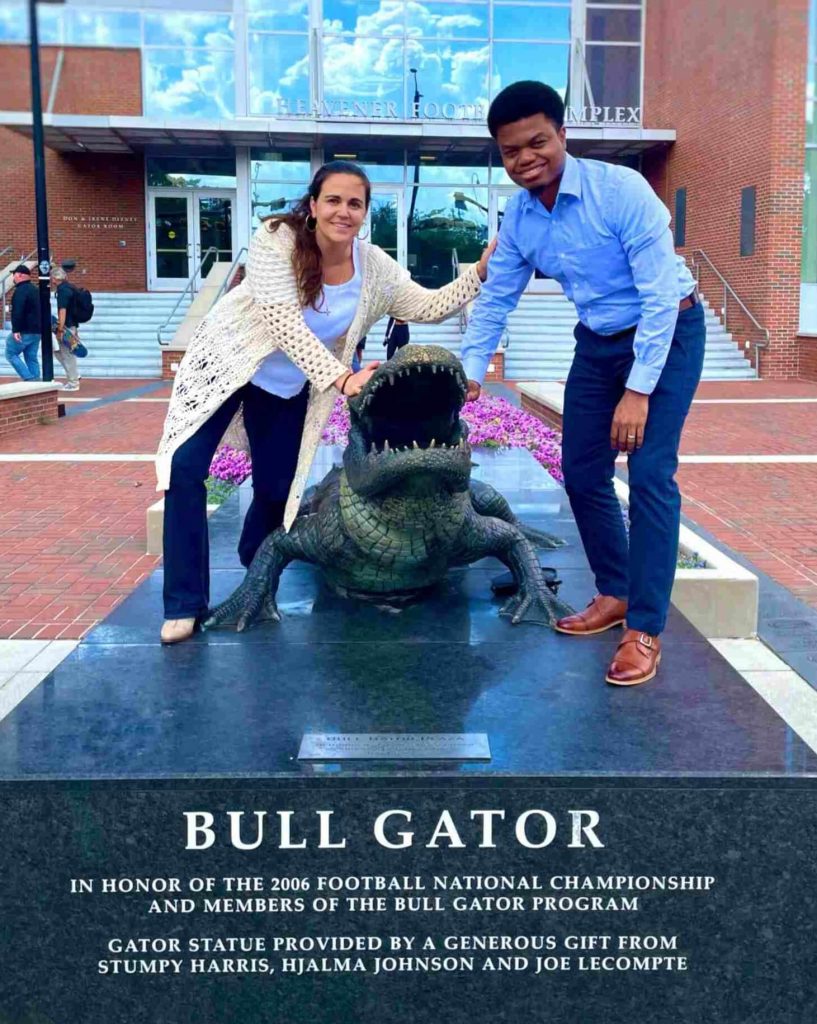By Megan Sam
Scott Lee Young is driven by a simple but powerful question: What can I accomplish that I once thought was impossible?
This mindset took root in his home country of Jamaica, where he and his high school team spent six months preparing for a national quiz competition. Covering topics ranging from proverbs and geography to math, physics and foreign languages — and giving students as little as a minute to answer questions — the competition demanded intense preparation, quick thinking and exceptional discipline.

“The preparation was very intense, and it required me to develop real discipline and a hunger to succeed,” said Lee Young. “After winning, I realized I had achieved something I never thought I could. It changed me, and I started to ask myself: What else might be possible, even if I can’t see it now?”
Drawn to tough challenges, he pursued coastal engineering, knowing it was a field that would push him to continue to learn and grow. Witnessing the devastating impact of Hurricane Dorian on the Bahamas in 2019 also influenced his decision.
“I was thinking about how I could help my country,” said Lee Young. “Being from Jamaica, an island nation like the Bahamas, I realized that a disaster like that could happen to us too. I really wanted to find a way to make a difference, and I found that opportunity through coastal engineering.”

Motivated by this vision, he applied to the prestigious Fulbright Foreign Student Program and was selected as a scholar, which gave him the opportunity to study and conduct research in the United States during his master’s degree. It was during this time that he met Professor Maitane Olabarrieta, Ph.D., who would also later become his doctoral advisor.
Today, Lee Young is a third-year doctoral student in the University of Florida’s Department of Environmental Engineering Sciences and student affiliate of CCS, studying under the mentorship of Olabarrieta, who is also an associate director at the Center for Coastal Solutions. His research focuses on the hydrodynamic factors that contribute to low dissolved oxygen levels, known as hypoxia, in the St. Lucie Estuary. Lee Young studies how physical processes such as stratification (the layering of water with different temperatures or salinities) and flushing rates (how quickly water moves through the estuary) affect oxygen availability. By understanding how these natural dynamics control water quality, Lee Young aims to help predict and manage hypoxic conditions more effectively.
“The most rewarding part of this work is its practical application — how it can help address some of the urgent water quality issues we’re facing,” said Lee Young.
Lee Young’s advisor praises not only his research skills but also his spirit of curiosity and collaboration.
“I feel truly lucky to have Scott in my lab,” said Olabarrieta, an oceanographer who leads CCS’ coastal hazards forecasting program. “His research on estuarine circulation, residence times and water quality is outstanding, and his ability to dive deep into tough coastal and engineering problems never stops amazing me. Beyond his sharp mind and meticulous work, Scott is a fantastic collaborator and a real pleasure to work with.”
